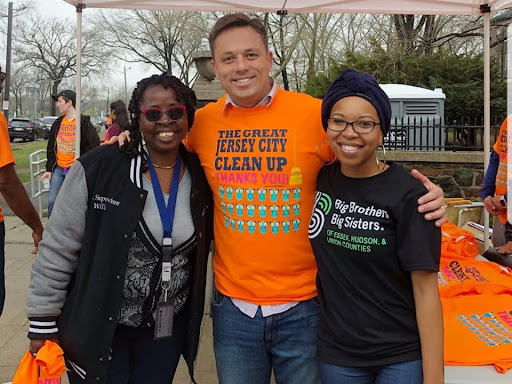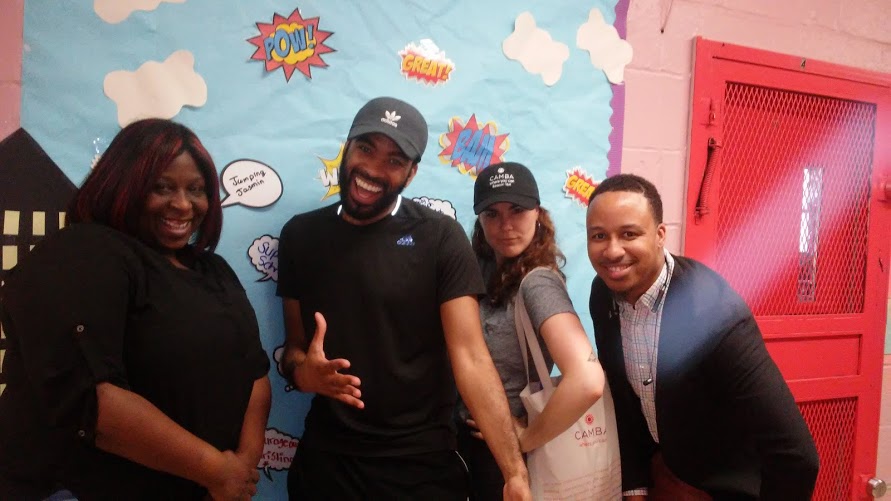
"We are what we repeatedly do. Excellence then is not an act but a habit." – Aristotle
“Leadership management,” or the idea of working with your team of managers to develop them as leaders, is vital to a healthy work environment. Supporting your managers to become leaders can help to create a workspace that is conducive to innovation, productivity and success—all of which are essential to any thriving organization.
That’s why it’s critical for those of us who lead teams to set goals for ourselves and set an example of the type of leadership we want to see in our managers. So where should we start?
As vice president of Education and Youth Development at CAMBA—a Brooklyn-based nonprofit that provides comprehensive services that connect people with opportunities to enhance their quality of life - it’s my job to ensure that the highest-need communities get the highest-quality programs and services in furtherance of our agency mission. I oversee 16 program locations, 43 contracts and more than 250 staff, 35 of whom are managers of their respective programs. The communities they work in look to them to be leaders on a daily basis, and so do I.
How can we help our staff, or ourselves move from working as managers to working leaders? For me, the easiest and most relatable mnemonic for effective leadership management can actually be found in each letter of the word L-E-A-D-E-R.
L: Loquacious as a Lifestyle
With most things in life, less-is-more, but for some communication, more-is-more. It’s helpful to build an environment where you’re consistently meeting with your team to outline goals and expectations, checking in to ensure that everyone is on the same page when it comes to completing assignments, and talking with staff to encourage them when they are going through work-related challenges. You should talk to staff when they are not meeting goals and guide them through course correction, as well as praise staff for meeting goals and going above and beyond their duties.
When someone is falling behind or struggling, you have a special opportunity to help them hone new leadership skills and transfer lessons learned, tools and perspective to overcoming their next challenge. For example, I had a staff member who didn’t seem to be a fit for our organization. He was absent a lot and when he did arrive to work, he was often late and wasn’t fully mentally present when at work. I pulled him aside and told him what I observed. I shared that I thought he was bright and capable, yet his habits were inhibiting him from excelling and I asked what he was going through. He admitted that he was not fully invested because he wanted more responsibility. We put together a plan for him to lead a series of time-sensitive projects. Not only did he complete the tasks, but he changed his attitude and immediately emerged as a leader of his program. In only one year, he became the program director, overseeing the entire staff at that site.
This situation affirmed for me, that open and honest communication can help people grow in their leadership skills.
Open and honest communication can help people grow in their leadership skills.
E: Envision Your Future Success
If seeing is believing, then you have to actually envision your future goals. You have to see achieving your goals as something that is possible in order for you to work towards attaining them.
During the 2015 American Express Leadership Academy, one of the speakers implored us to set goals, even when they seem ridiculous or out of reach. Goal setting, she said, is critical to how we carry ourselves each day. Consider this, if you are successful at your work and don’t seek improvement or growth, will you magically grow? How many people do you know who are great at what they do but have stagnated, doing the same thing for years? That may be a sign that they have yet to set greater goals for themselves.
I set a lofty one: to be a Vice President at my agency within one year. At the time of the Academy, I was a senior program manager. In order for me to become a VP, I would have to advance over four internal titles–a highly unlikely feat in a year.
But after setting that goal, I began to do extensive research and to spend time looking into exactly what it would take for me to be a VP, by looking at other VPs in the agency. I soon came up with a roadmap. My goal setting actually shaped everything I did for the next 10 months. I think you know how the story ends (watch it in this 90-second video): it took me 10 months to become a Vice President. I rest my case.
A: Allow Yourself and Your Team Space to Grow
You will not succeed at everything the first time you try. You will not get every contract you apply for, nor will you have all the answers for every situation your first time around. Things will not always go your way. Understanding this and allowing yourself space to grow is important to your psyche, it’s important to keep yourself in the game.
Failures and setbacks represent a space for opportunitites, growth and for change. Embrace your failures and allow them to teach you what to do differently the next time.
Failures and setbacks represent a space for opportunitites, growth and for change. Embrace your failures and allow them to teach you what to do differently the next time.
I approached my supervisor for a raise and asked to take on an additional program within my agency. I had charts and graphs to show that this move would be cost-effective and create efficiencies – and I was denied. I was disappointed but I was not upset. I recognized that it was not my time and saw this “failure” as an opportunity to look at what I could do differently the next time. It ultimately helped me grow and expand my perspective.
D: Define your Goals and Expectations
The best way to know that you are doing well in your leadership journey is when defining your goals becomes an ongoing, fluid exercise.
When I started the American Express Leadership Academy, I came in with a set of specific leadership challenges that I needed to tackle. By the time I left the Academy, I added an entirely new set of goals. Since graduating from the Academy, I have attained each goal that I set out to achieve. I now have new goals and want to do more within my agency. I have also tasked my management team with setting new goals, and to take on new leadership challenges. We are constantly learning more, growing and trying to get better along the way. The only way to truly grow as a leader is to continually set goals and expectations, and once they are met, push ahead to set new goals.
So the formula is simple (even if completing it is not always): Set Goals, Achieve Goals, Repeat!
E: Embrace the Process
Leadership is a process, or a destination, its a journey that is never completed. You can’t skip any step in the process – you must continue to develop soft and hard skills along the way. Whether yours is long or short, everyone has to go through the journey of ups and downs, ebbs and flows, successes and failures. And in order to sustain your leadership you have to embrace the fact that the process is ongoing and ever-changing; and it’s necessary.
R: Respect Everyone
You do not live or work in a bubble. Your achievements are not the sole product of your own hard work. In every instance, there was someone who contributed to your success. From the janitor to the secretary; everyone at your work is important and should be respected. I make it a habit to show great respect for and appreciate my team, not simply for what they do but for who they are as people.
You do this because it’s right, but it can also come back to you in positive ways. A case in point: We had a great working relationship with a security staff at an after-school program I oversaw. When he was ready to move on, we gave him a surprise going away party. On his last day, we gathered in my office and called him in to what he thought was a meeting. We surprised him by playing “It’s So Hard to Say Goodbye to Yesterday” by Boyz II Men and ate cupcakes. Two years later, I was at an NBA game and wouldn’t you know, my former security staff had spotted me in a crowd. He had become a security supervisor at the arena and was excited to tell me about his success. We discussed opportunities for children of the after-school program to come to a game and meet some players. This only affirmed to me that the people you respect and take care of will also respect and take care of you.
Each of us is on a leadership journey. We must embrace the process, for ourselves and others. Everyone you meet will teach you something new. Embody all that a L-E-A-D-E-R is supposed to be and continue to strive for excellence in your leadership journey. Make it a part of your everyday, your new habit.










